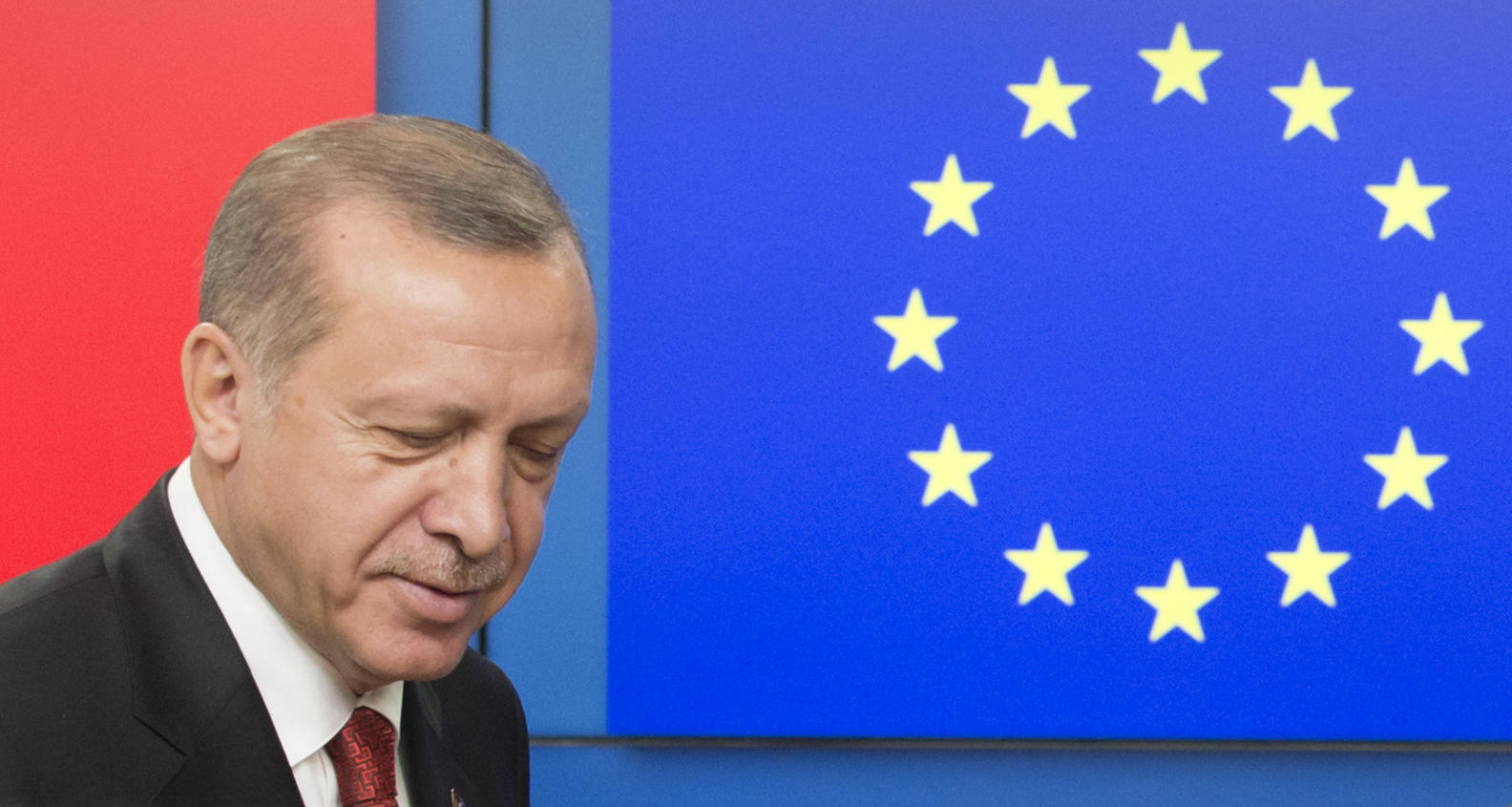Turkey’s President Recep Tayyip Erdogan has always been good at rattling cages among his western allies. His latest prolonged rattle, blocking Sweden’s application to join Nato in the wake of the war in Ukraine, apparently came to an end this week, but it’s not yet clear what exactly he’s received in return.
The Biden administration may have voiced support for selling Turkey new F-16 fighter jets, in the process vowing to conquer hesitation about any deal in the US Congress, but Erdogan’s most intriguing comments relate to matters closer to home.
As this week’s Nato summit began, the Turkish President proposed that Sweden’s Nato bid should be linked to his country’s application to join the European Union. This ambition has already been rejected by the European Commission, with the body pointing out that the EU and Nato are separate entities, with entirely different processes of accession.
European leaders and Brussels insiders have long disputed Turkey’s suitability as an EU candidate, citing democratic shortcomings and the country’s overwhelmingly Muslim population. This latter factor will likely be seized upon in member states like Poland, where ahead of this autumn’s elections both the governing party and the main opposition have raised fears over Muslim immigrants, and Hungary, whose Prime Minister Viktor Orbán has warned against “Muslim invaders” claiming to be refugees.
Turkey first applied for membership of the Common Market in the 1960s, finally opening formal membership negotiations with the EU in 2005, but progress since then has been almost glacial. Cyprus continues to block most initiatives, drawing attention to the EU’s tolerance of Turkish violations of international law. This standoff is unlikely to change so long as Turkish troops remain in the northern half of the island, where Turkey recognises and supports a breakaway state.
Meanwhile, Brussels’s focus is currently on beginning formal discussions about Ukraine’s potential EU membership before the end of the year. This is a massive undertaking, not to mention a complex process of reform that could stretch on for years. There’s little appetite for grasping the Turkish nettle at the same time.
If Turkey were ever to join, it would immediately become the largest country in the bloc. EU leaders such as Emmanuel Macron have already protested that a project born from economic cooperation among a small group of countries in western Europe has become unwieldy. Borders as far-flung as Iran, Iraq and Syria — not to mention the security problems they might bring — would be a step too far.
Surely, then, Erdogan realises that EU accession is not a credible short-term goal, and the chance of it happening in the next two decades is negligible. The more realistic outcome, still beneficial to Turkey, would be improved relations with the bloc. Its economy is in trouble, with a record account deficit of $37.7 billion recorded in May of this year. Closer ties to Brussels may bring a modicum of financial relief, while Turkey offers a way of mitigating the continent’s persistent migration issue, helping slow the flood of refugees and economic migrants seeking to reach Southern Europe. Sweden has also passed a new anti-terrorism law that may target supporters of Kurdish rebel group PKK, classified as a terrorist organisation by the EU, the UK and the US.
There are early signs that Erdogan may be prepared to take a stronger stance in support of Ukraine too, a move that would be welcomed in Washington as well as the capitals of Europe. Yet an increasingly productive relationship with the EU is far more likely than full membership, and Erdogan knows this.
During the Brexit referendum, the Leave campaign warned that the UK couldn’t stop Turkey joining the EU, and that 80 million Turks could be heading for Britain imminently. Of course, this was never going to happen: every member state has a veto for countries seeking to join. With widespread human rights abuses and purported suppression of democratic norms in Turkey, few European leaders will be clamouring for Erdogan to join them at the high table. Judging by past comments, while he may find this wounding, he’s unlikely to change his ways.











Join the discussion
Join like minded readers that support our journalism by becoming a paid subscriber
To join the discussion in the comments, become a paid subscriber.
Join like minded readers that support our journalism, read unlimited articles and enjoy other subscriber-only benefits.
Subscribe